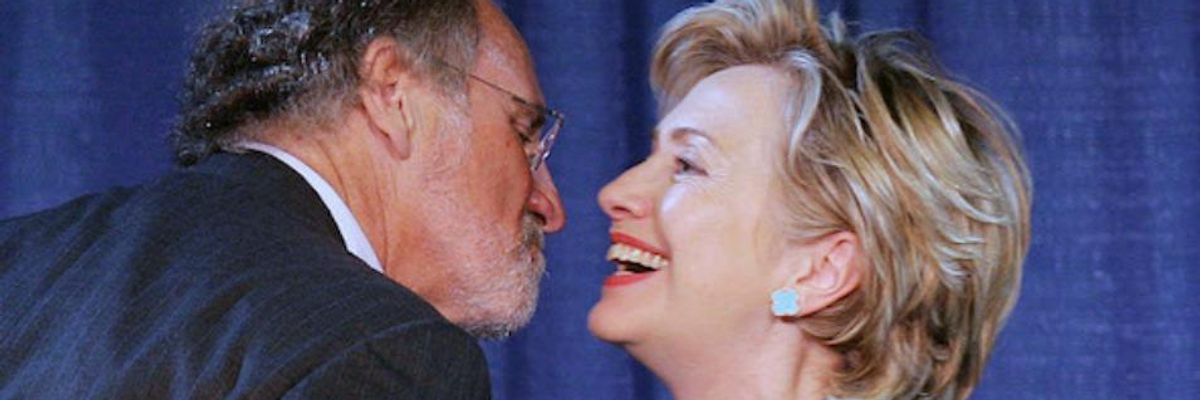She eats at Chipotle. (Order: chicken burrito bowl.) She travels by van. (Model: A Chevy Express Explorer Limited SE nicknamed the "Scooby" van.) She barely figures in her own presidential campaign announcement video. (Entrance timing: A minute and a half into the two-minute clip.) Her campaign staff is so cheap they don't have business cards, they commute by Bolt Bus, and they aren't even equipped with real phones.
This is the "new" Hillary Clinton in the early days of her 2016 presidential bid. Absent -- for now -- are the swagger, the grand pronouncements, the packed gymnasiums and auditoriums, and the claques of well-paid consultants falling over each other to advise and guide her that we saw in Clinton's last presidential bid. This time around, Clinton is casting herself in a new role: as the humble and understated people's candidate. She cares about "everyday Iowans" and "everyday Granite Staters." She really does! Her carefully staged events with those "everyday" Americans at small-town coffee shops and local businesses give her the chance to "share ideas to tackle today's problems and demonstrate her commitment to earning their votes.
This effort to recast Clinton as a folksy, down-to-earth, woman of we-the-people is, however, about to collide with the reality of American politics in the money-crazed, post-Citizens United era. Winning the White House in 2016 will cost somewhere between $1 billion and $3 billion -- money raised by the candidate's own campaign and outside groups like super PACs and dark-money nonprofits. And this in an election where it's already estimated that the overall money may hit $10 billion. Jeb Bush, arguably the most formidable candidate in the GOP field, is on his way to raising $100 million in just the first few months of 2015, a year and a half before the actual election. The prospect of being drastically outgunned by Bush has prodded Clinton to speed up her fundraising schedule and hit the donor circles in New York City and Washington in settings that couldn't be more removed from the local Chipotle. "I need to get out there earlier," Politicoquoted her telling one of her aides.
In the coming months, whatever hours Clinton spends introducing herself to voters in small-town America, she will spend hundreds more raising money in four-star hotels and multimillion-dollar homes in Hollywood and San Francisco, New York and Boston, Washington and Miami. She will court wealthy liberals across the land and urge them to collectively give tens of millions of dollars to her campaign. The question underlying this inevitable mad dash for cash isn't "Can Hillary Clinton raise the funds?" The Clintons are practiced buckrakers.
The question is: "Can Clinton claim to stand for 'everyday Americans,' while hauling in huge sums of cash from the very wealthiest of us?"
This much cannot be disputed: Clinton's connections to the financiers and bankers of this country -- and this country's campaigns -- run deep, as Nomi Prins, former Wall Street exec and author of All the Presidents' Bankers: The Hidden Alliances that Drive American Power (just out in paperback), writes: The Clintons and Their Banker Friends. As she documents in her book, the Clintons have longstanding ties to the mightiest banks on Wall Street. Those alliances will prove vital as Hillary tries to keep up in the "money primary" of the 2016 campaign. But as she tries to appeal to working and middle class people, you can expect her opponents to use Clinton's Wall Street connections against her. And it's reasonable to ask: Who counts more to such a candidate, the person you met over that chicken burrito bowl or the Citigroup partner you met over crudites and caviar?
